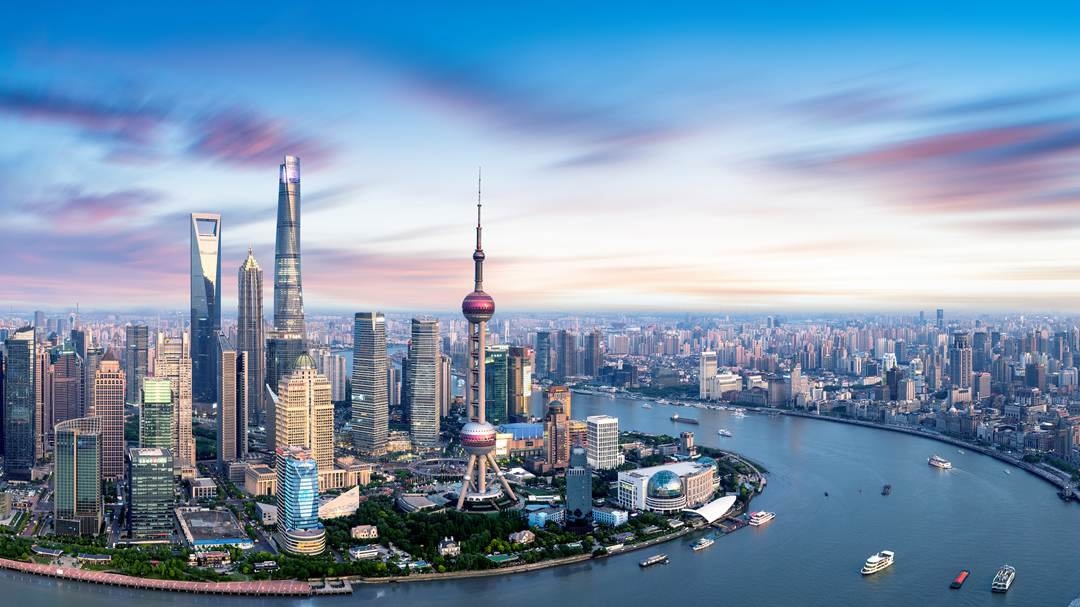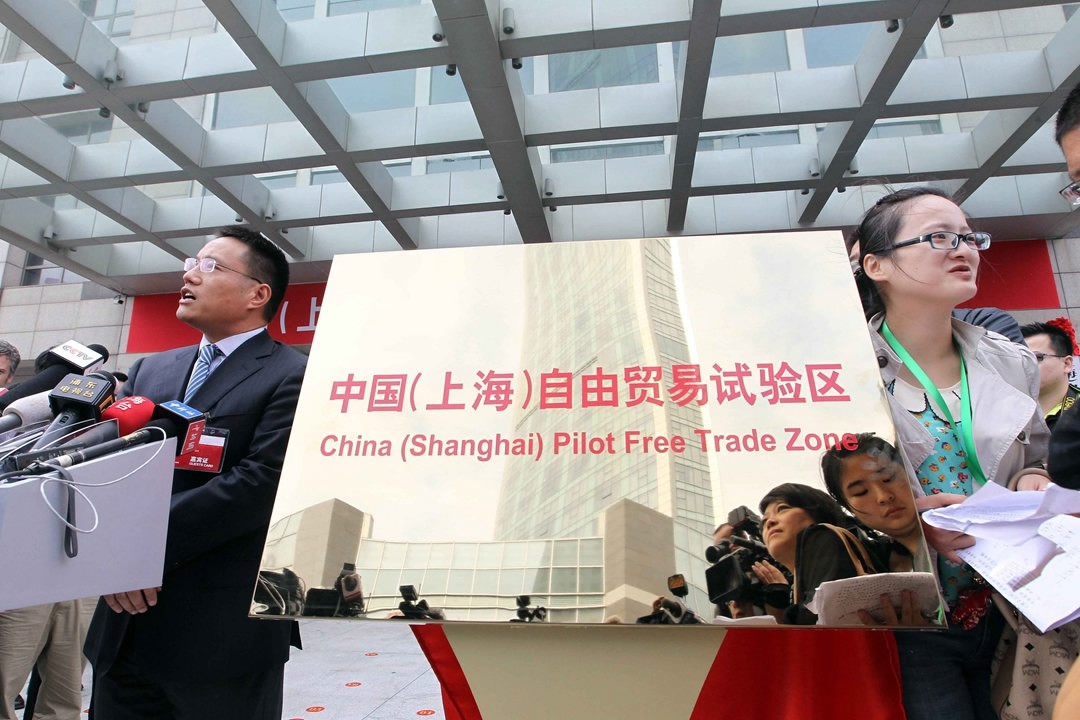
City view of Shanghai. /CFP
City view of Shanghai. /CFP
Editor's note: Liu Chunsheng, a special commentator on current affairs for CGTN, is an associate professor at the Central University of Finance and Economics in Beijing. The article reflects the author's opinion, and not necessarily the views of CGTN.
The Shanghai Free Trade Zone (FTZ), as a frontier of China's reform and opening-up, has achieved remarkable success since its establishment. The creation of the FTZ marked the Chinese government's commitment to further open up its market and deepen reforms, contributing positively to sustainable economic growth in China and global economic development.
One of the key successes of the FTZ lies in its liberalized trade policies. The FTZ introduced a series of unprecedented liberalization measures, including more relaxed foreign investment access policies, currency convertibility, flexible foreign exchange management, and streamlined cross-border trade procedures. These policies have made it easier for foreign companies to do business in the Chinese market.
The FTZ has attracted a multitude of international companies and financial institutions, positioning Shanghai as a significant global investment hub. This not only facilitates China's deeper integration into the global economic system but also provides more opportunities for international investors.
Several renowned international companies like Coca-Cola and General Electric have set up regional headquarters in the FTZ to better serve the Asia-Pacific market. Another concrete example is the establishment of joint ventures by several foreign automakers in the FTZ, benefiting from greater market access. For instance, Tesla's decision to build a factory in the FTZ significantly accelerated its production and sales in China, injecting new vitality into the Chinese electric vehicle market.
Tesla was recently awarded the title of "Exemplary Enterprise for Institutional Innovation in the 10th Anniversary of Shanghai FTZ Construction." The policy and institutional achievements of the Shanghai FTZ's open and innovative approach have played a significant role in Tesla's rapid progress. Tesla's massive Shanghai Gigafactory, with its substantial scale and complex construction, would typically require a lengthy period for traditional administrative approval processes. However, the Shanghai FTZ implemented a "deferred rectification" mechanism while ensuring the legality and compliance of all approval steps, expediting the relevant approval procedures.
The FTZ has undertaken innovative reforms in the financial sector. Firstly, it initiated interest rate liberalization, promoting market-oriented interest rate pricing. This reform allowed banks and financial institutions to set loan and deposit rates more freely, enhancing competition in financial markets. For instance, the People's Bank of China launched a trial program in the FTZ for interest rate marketization, attracting domestic and international financial institutions to participate actively. Secondly, the FTZ introduced pilot programs allowing foreign banks to participate in offshore RMB business.

China (Shanghai) Pilot Free Trade Zone opens, China's Shanghai, September 29, 2013. /VCG
China (Shanghai) Pilot Free Trade Zone opens, China's Shanghai, September 29, 2013. /VCG
This policy attracted numerous international banks to enter the FTZ, fostering the development of the offshore RMB market. J.P. Morgan has set up offshore RMB operations in the FTZ, providing more convenient offshore RMB services for clients while advancing the internationalization of the RMB. The financial reform experiences of the Shanghai FTZ have been promoted nationwide and these policies have contributed to enhancing the competitiveness of China's financial system and promoting greater connectivity with international financial markets.
The successful experiences of the Shanghai FTZ have been widely promoted and adopted nationwide, exerting a significant impact on China's reform and opening-up initiatives.
The Shanghai FTZ pioneered more open and convenient foreign investment policies, including reducing restrictions on foreign investment access, lowering foreign ownership percentage limits in certain industries, and streamlining the procedures for establishing foreign-funded enterprises. These policies have been widely promoted nationwide, leading to the adoption of a "negative list" approach to encourage greater foreign investment in various regions.
The FTZ introduced policies and measures to facilitate trade. This includes simplified customs procedures, more efficient customs clearance and logistics, and a variety of trade financing tools. These reforms are not only improving trade efficiency but also reducing operating costs for businesses. A case in point is the flourishing of cross-border e-commerce platforms in the FTZ, offering Chinese consumers a wider selection of international goods and injecting new vigor into China's cross-border e-commerce industry.
The FTZ is regarded as a fertile ground for innovation and entrepreneurship in China. It has attracted a multitude of startups and research institutions, offering a more flexible entrepreneurial environment and greater policy support. The innovation and entrepreneurship ecosystem in the FTZ continues to grow, infusing new momentum into the Chinese economy. NIO, a Chinese electric vehicle manufacturer, established itself in the FTZ and successfully conducted its initial public offering (IPO), gaining international recognition for China's new energy vehicle industry.
The development prospects of the Shanghai FTZ are full of potential and opportunities. The FTZ will continue to deepen reforms and further expand its opening-up, attracting more foreign investment. The financial reforms in the Shanghai FTZ will contribute to Shanghai's aspiration to become an international financial center. The Shanghai FTZ will continue to drive innovation and technological development, attracting more high-tech enterprises and innovative companies. The innovation ecosystem in the zone will continue to flourish, making significant contributions to technological innovation at the city and national levels.
As a frontier in China's reform and opening-up efforts, the Shanghai FTZ has promising development prospects. With ongoing deepening of reforms and expanding opening-up policies, it will continue to make positive contributions to the growth and prosperity of both Chinese and global economies.
(If you want to contribute and have specific expertise, please contact us at opinions@cgtn.com. Follow @thouse_opinions on Twitter to discover the latest commentaries in the CGTN Opinion Section.)